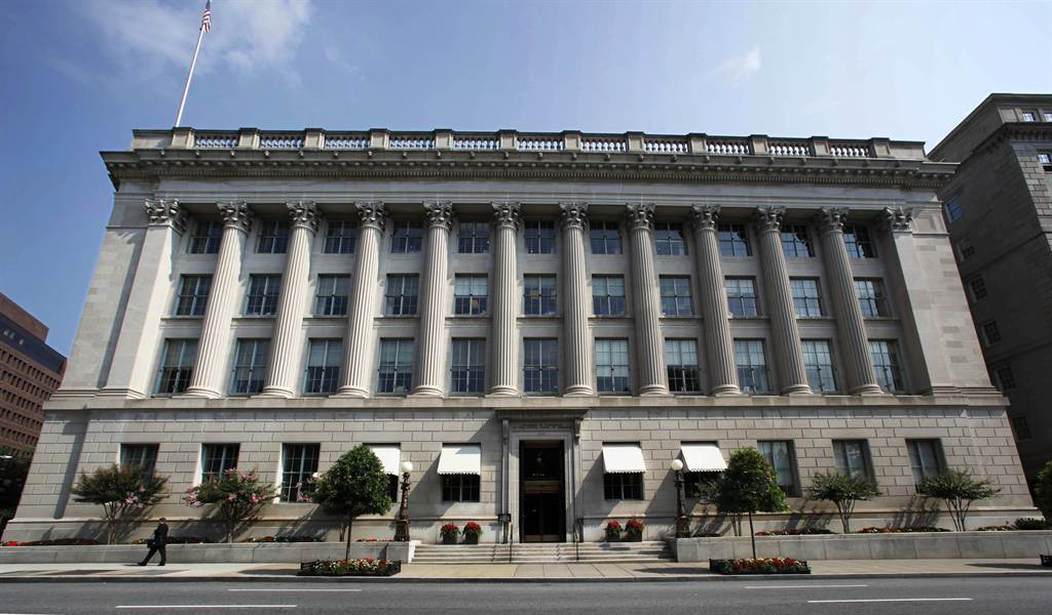The news is replete of reports of Russia developing new missile systems, escalating a war in Ukraine, selling missile technology to Iran, and intercepting US jets in provocative ways. In this perilous environment, it is easy to see the folly and danger of dealing with these serious risks by unilaterally disarming. The behavior of Russia, China, Iran, North Korea and organizations like ISIS make it obvious that unilateral disarmament only invites more bad behavior and puts America at risk.
This important lesson applies to the economic world as well. International trade is an important economic engine for American jobs and American prosperity. But most nations heavily subsidize their own industries to make their products cheaper and more appealing in the international marketplace. That harms American jobs and stifles American prosperity. In this environment, economic unilateral disarmament makes no sense.
Yet, that is precisely what some assert we should do when they argue we should abolish the Export-Import Bank. Other nations are heavily subsidizing their nation’s goods so that they can undercut American firms. Until we have effective multilateral disciplines in place that curtail unfair trade practices, we would be unwise to abolish the Export-Import Bank.
The Export-Import Bank does not subsidize U.S. firms. Instead, it assists U.S. manufacturers, large and small, to export their goods to foreign buyers. Even the large American companies whose customers use the services of the Export-Import Bank have thousands of small firms as contracting partners.
The Export-Import Bank does not compete with private sector lenders. It is a “lender of last resort” and simply provides economically sustainable loan guarantees where they are not otherwise available — filling in banking gaps so that U.S. goods can be exported to nations where commercial financing is unavailable.
Recommended
The Export-Import Bank doesn’t cost taxpayers a dime — it is self-sustaining and actually returns money to the U.S. Treasury – more than $1,000,000,000 in 2012 alone. Since its inception, less than 2% of the Bank’s loans have ever defaulted. That is better than most private sector lenders and because highly valued manufactured goods are part of the collateral for these loans, the risk of loss is very low even in the event of a default.
As a conservative, I oppose subsidies, high taxes, burdensome regulations, cronyism, and restraints on trade — all of which prevent Americans from successfully competing in the international marketplace. I have spent my adult life fighting for free markets and smaller, less intrusive government. I know that American innovation and entrepreneurialism produces the best products on the planet. When American firms compete based on quality, and price, Americans win.
That is exactly why so many of our competitors subsidize their major corporations — so they can undercut U.S. firms. China, France, Brazil, Russia and many other nations provide large subsidies and promise below market financing to buyers to undercut American businesses and workers. As a result, American firms not only have to compete with foreign companies, but with foreign governments as well.
In an ideal world, we would have free and open trade with all nations and compete in a world marketplace based on the quality and price of our goods. But American businesses are at a distinct disadvantage when they must compete not only with foreign corporations, but also with the nation’s host government.
For decades, the Export-Import Bank has given U.S. companies a fighting chance at competing on this unfair and very un-level global playing field by ensuring financing for U.S. exports when private lending isn’t available.
The Export-Import Bank is periodically reauthorized and is up for reauthorization this year. Historically, it has been a rather automatic, bipartisan matter. This time it is more contentious.
Many of my fellow conservatives argue that competitive free markets should decide which goods and services are bought and that government should not be involved. I wholeheartedly agree. I only wish we could get China, Russia, Brazil, France and most of Europe and South America to agree as well. But until we can get others to agree, we need the Export-Import Bank.
In an ideal world, we’d have free trade agreements across the globe, and other nations would not use industrial policies to tilt the playing field in their favor. But that is not the world we currently live in. And if we unilaterally abolish the Ex-Im Bank without having verifiable and enforceable free trade agreements, we are effectively engaging in unilateral economic disarmament. Just as unilateral nuclear disarmament is naive and dangerous, unilateral economic disarmament will impose real economic costs on America.
Perhaps, this is why President Ronald Reagan backed reauthorization of the Ex-Im Bank. No one can question Reagan’s conservative credentials or his commitment to free markets. But Reagan also understood that we cannot engage in economic unilateral disarmament.

























Join the conversation as a VIP Member